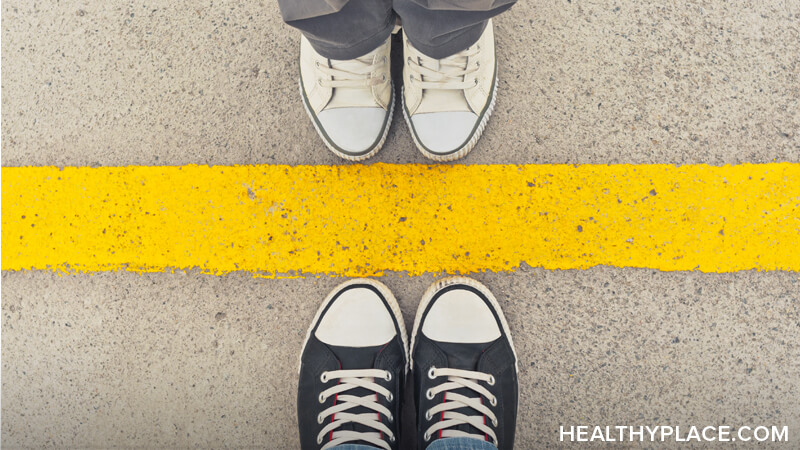Boundaries Are Crucial in Eating Disorder Recovery

In my own experience, boundaries are frequently talked about in the mental health community as pillars of self-care, but all too often, it's unclear how to create and reinforce those healthy boundaries. I define boundaries as an instruction manual for which behavioral dynamics, communication habits, and interpersonal treatment I either will or won't tolerate in my relationships—and life overall.
This rulebook protects my emotional and mental health while enabling me to build safe, positive connections with those I care about. Moreover, I continue to learn that boundaries are crucial in eating disorder recovery as well.
Why Boundaries Matter for Those in Eating Disorder Recovery
The main reason that boundaries are so crucial in eating disorder recovery is that they bring personal needs, values, and priorities for healing into clarity. When I am clear on my boundaries, this creates self-awareness which then illuminates what I need to help further my commitment to eating disorder recovery.
Boundaries shelter the mind from toxic messages that can fuel destructive beliefs. Boundaries insulate the body from unwelcome contact, objectification, or scrutiny that can lead to dangerous patterns of behavior. Boundaries allow the space for emotions to be processed in a secure, constructive way.
Boundaries keep wellbeing at the forefront of all encounters, activities, and interactions. When my boundaries are intact, there's less opportunity for triggers to entice me back onto an unhealthy course. That's the power of being in tune with personal needs, refusing to sacrifice them, and pursuing a life of emotional, mental, relational, and physical integration. This is why I maintain that boundaries are crucial in eating disorder recovery.
The Boundaries I Practice to Maintain Eating Disorder Recovery
Boundaries are unique and specific to each individual, so it's worth mentioning, the boundaries that work for me might not resonate with someone else. For boundaries to be healthy, effective, and sustainable, they must align with a person's value system and center wellbeing as the focal point. My own boundaries help me communicate to friends or family members how to interact with me in a way that honors my commitment to healing.
Here's a list of boundaries that I have found to be crucial in eating disorder recovery:
- I ask nurses or doctors at all medical appointments not to inform me of what I weigh.
- I request that my parents hide their bathroom scale before I come to their house for a visit.
- I change the topic—or in some cases, exit the conversation—when food, weight, exercise, or body-centric talk arises.
- I know which people I am comfortable eating in front of, but I will not share meals with those I feel too anxious eating around.
- I allow safe, trusted members of my support network to hold me accountable for the health of my actions and choices.
- I am not afraid to say "no," if an interaction, decision, or situation feels like it would compromise my own mental wellness.
- I hold space for those I care about who need a listening ear, but I don't make myself responsible for their emotional burdens.
- I ensure that my self-care needs are met before I offer advice or help to anyone else.
- I do not take on any commitments or obligations that could interfere with therapy sessions.
- I strive for realistic expectations of others while still continuing to protect myself from harmful, non-negotiable treatment.
Are boundaries crucial in your eating disorder recovery? Which boundaries do you practice on a regular basis? Is it an easy or difficult task for you to establish and reinforce boundaries? I would love to hear your thoughts in the comment section below.
APA Reference
Schurrer, M.
(2021, August 4). Boundaries Are Crucial in Eating Disorder Recovery, HealthyPlace. Retrieved
on 2025, November 28 from https://www.healthyplace.com/blogs/survivinged/2021/8/boundaries-are-crucial-in-eating-disorder-recovery